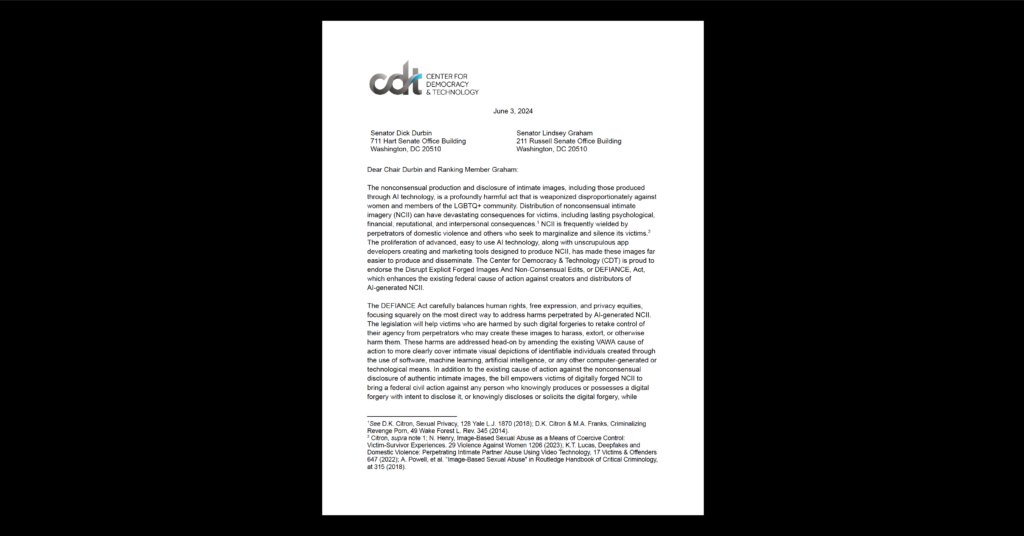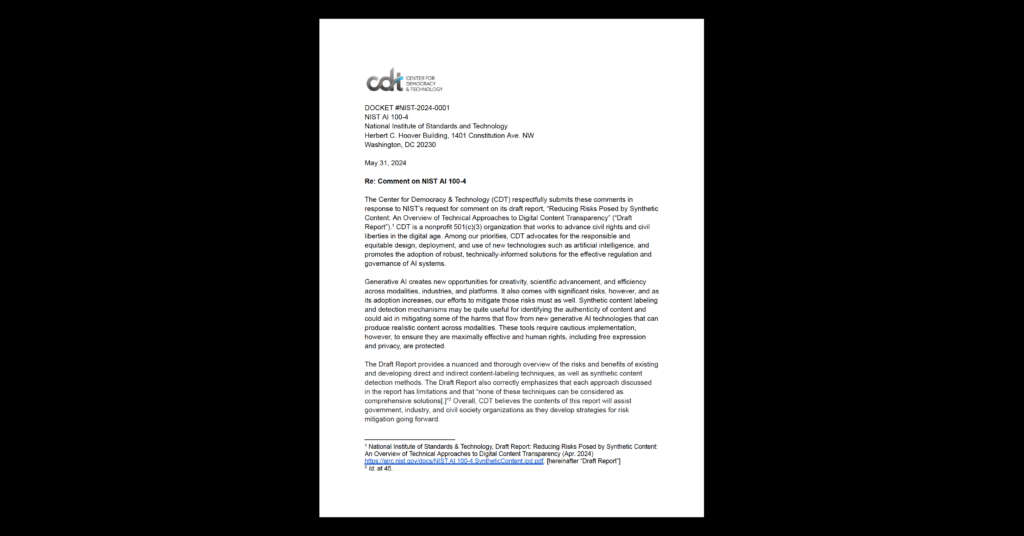Section 230 is about Free Expression
U.S. House Energy & Commerce leadership recently announced draft legislation that would sunset Section 230 protections. Repealing Section 230 in the absence of an agreement about what a post-230 world would, or should, look like would threaten users’ free expression rights, and exacerbate the very problems some in Congress seek to solve. Any conversation about reforming Section 230 must put users at the forefront, including users who rely on Section 230’s protections to exchange information online.
Section 230 has often been portrayed as a gift to industry, intended to help fuel the economy’s then-nascent tech sector. In reality, Section 230 was written with users in mind. As the authors of the provision commented at the time of its adoption, the purpose of Section 230 is to “protect computer Good Samaritans” that make online spaces safer, and to state clearly that “government censors must not be allowed to spoil [the internet’s] promise.” The law accomplishes both goals by clarifying that platforms aren’t responsible for their users’ misconduct, and simultaneously enabling those platforms to create and maintain useful and safer online spaces by removing offensive or inappropriate speech from their services. Free from the concern that they could be sued for the actions of their users, or for making efforts to provide safer online experiences, platforms can give users space to express themselves and congregate online.
At its core, Section 230 is about the exchange of ideas. It protects the most important speech and the most everyday, including speech about faith, politics, and restaurant reviews, with no partisan valence. As states pass laws banning certain books in schools, restricting reproductive care, and prohibiting medical treatment for trans and gender-nonconforming people, it is Section 230 that protects the exchange of critical information, art, and controversial books online. Section 230 also creates space to criticize the administration’s immigration policies and President Trump’s prosecution across platforms large and small. Section 230 does not care about users’ party affiliation — just that people have the opportunity to express themselves and find the information they need online.
Section 230’s protections are appropriately broad, recognizing that platforms must not be held liable for the speech of their users if they are to be expected to carry and facilitate that speech. But Section 230’s protections are not all-encompassing. Section 230’s liability shield does not extend to violations of federal criminal law or to intellectual property infringement, among other exceptions. Section 230 is also not an absolute bar to product liability claims when those claims do not seek to hold platforms liable as publishers of their users’ content. A growing number of cases recognize that, like all other manufacturers, platforms are liable for the design of their products, unrelated to publication activities or its users’ speech. While the distinction between product liability claims that treat platforms as publishers and those that do not may be challenging to draw, that distinction is possible. Doing so appropriately can both protect users’ free expression rights and ensure that those harmed by unsafe product design, distinct from third-party expression, can seek redress without running afoul of the text or purpose of Section 230.
Emerging from the pandemic, the public’s attention is understandably focused on the ways that we live online, from keeping kids safe to protecting users’ privacy. Proposing to repeal Section 230 amidst a broader conversation about how to keep people safe online and make digital spaces more inclusive, however, fails to acknowledge Section 230’s key role in facilitating content moderation. While most discussion of Section 230 focuses on the immunity it extends to platforms for user’s speech, just as importantly, Section 230 also protects platforms’ ability to make online spaces safer and more useful. Abuse and misinformation are not experienced equally online, with dire consequences for our democracy. Congress cannot expect to do better for these and all users by eliminating the statute that protects good-faith efforts to make online spaces safer for everyone. Members of Congress should work with their constituents and civil society to improve users’ online experiences, but repealing Section 230 without considering its effects on free expression is the wrong approach.


